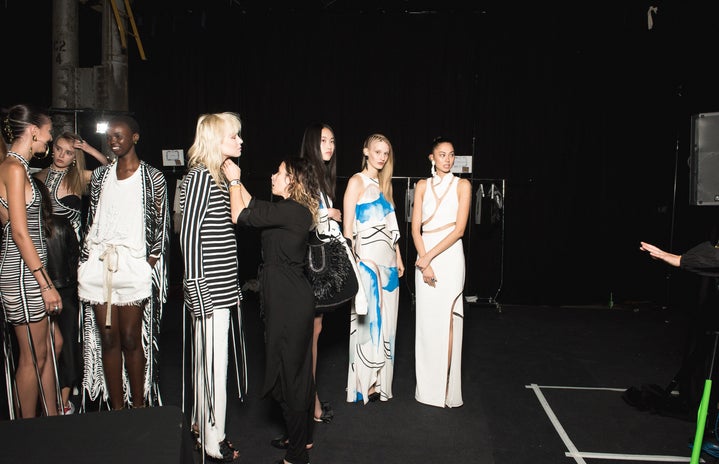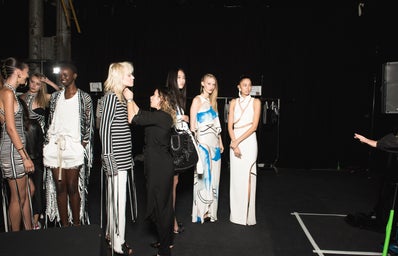The prevalence of fashion societies in St Andrews came as a surprise to me upon settling into life here. Posters and Facebook events circulate each semester for charity Fashion Shows like FS, DON’T WALK, and Sitara. Questions like, “which fashion show are you going to?” or “are you going to try out for any modelling societies?” come up in class and in the halls. When I first arrived, I had no idea the scope and importance of the ‘fashion society’ scene at this university. I could not have anticipated these groups having an importance akin to, if not greater than, for example, sports. I was also confused by the fact that, judging from their social media presences, none of these groups seemed cohesively engaged in a particular style or with student designers. The more I learned about them, the more it became clear to me that, while it may be a part of it, artistry and fashion is not what these groups seem to be all about. I also began to realise that the fetishisation of exclusivity is almost unavoidable in our formative years, taking different forms across the world.
If my American peers are anything like me, then an initial decision on going abroad came from the choice to not engage with universities in the United States. I’ve heard my friends discuss their decision to not have ‘the American college experience,’ which to each person could mean anything from the academic disparities, to being close to home, to Greek life.
There’s a certain superficiality, or increasingly colloquial, ‘pretty-privilege,’ which is blatant in the judgment of someone’s model quality. Even event organisers, who are, like jobs in the real world, in theory judged on experience and skill, social connections make a big difference, and we can only hope that such a standard is upheld. Once admitted, a world of private events, parties, and dinners open up to models or those who hold positions on fashion committees. Housing, which is increasingly desperate in town, also becomes more accessible. The social circles that open up for those deemed attractive or connected enough and the perks that come with them, monopolised by these societies, ring all too familiar to American Greek life.
While they may seem completely different, I would argue that these aspects of University social life take up the same space and serve the same purpose. In the US, students ‘rush’ for sororities and fraternities, judged on their appearance, connections, clothes, and social skills – they join ‘houses,’ live with each other, and are able to get into events based on their status or attachment to these groups. The rituals and exclusivity is almost identical to Fashion Societies here in St Andrews.
Where sororities and fraternities have legacies and other elitist roots connected to their historic universities, St Andrews fashion societies have their own legacy, with Britain’s beloved Kate Middleton supposedly meeting her future prince at a show in which she walked. The allure and exclusivity prevails with each semester. Students deemed attractive and connected enough continue to be upheld and granted privileges while their peers aren’t. And for American students, like myself, who actively chose to avoid the Greek Life back home, the culture of exclusivity seems to follow us relentlessly wherever we go.


